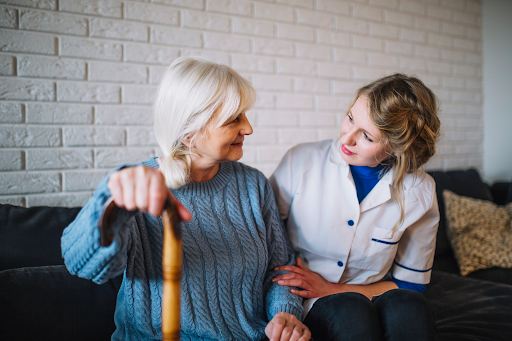As people grow older, they often need extra help to stay safe and healthy. Many families worry about giving the right care while letting their loved ones stay home. That’s where in-home care comes in. It offers emotional backing, tranquility, and confidence. Here’s how in-home care contributes to safer and healthier elder care.
1.Personalized and Consistent Care
In-home care really focuses on what each older person needs. It happens right where they live and feel most comfortable. It’s not a standard plan for everyone. Instead, it’s all about the person. Maybe they need help with daily tasks. Or maybe they have a specific health issue. Sometimes, it’s just about doing things the way they prefer.
This type of care helps create a strong bond. The caregivers can notice small changes in how the person behaves or feels, which means they can get help sooner and lead to better overall support. When someone visits regularly and there’s a set routine, older adults often feel more secure and like someone truly cares.
2.Improved Safety in the Home Environment
Elder care typically includes creating a safe and accommodating home environment. The people who help them look closely at their houses. They check for things that could cause problems, like slippery floors or insufficient light. They also look at furniture that’s hard to walk around.
By changing small but important things, they help stop falls and other accidents. They also help with moving around, like walking or getting dressed. This way of helping older people gives their families peace of mind. They know their loved ones are safe at home. It really makes their house a better and safer place to live.
3.Medication Management and Health Monitoring
It can be hard to keep up with medicines and health changes when someone takes many different pills. In-home care helps a lot with this. The people who come to the home ensure the older person takes their medicine correctly and at the right time. This stops them from missing doses or taking the wrong pills together.
The caregivers also monitor blood pressure and the person’s general well-being. This means they can quickly see if something is not normal, like if the person is not eating well or seems tired or sad. Watching closely every day helps prevent small problems from becoming big ones, giving older people a better chance to stay healthy and feel steady.
4.Emotional and Social Well-Being
Taking care of older people is not just about their bodies. It’s also about how they feel inside. In-home care does more than just help with things around the house. It also brings friendship. The people who come to help talk to the older person and listen to them.
They might eat meals together and give them support when they feel down. This regular talking and being with someone helps them feel like they matter and are not alone. It can make them feel less lonely and sad. This can really help their feelings and their bodies over time. It truly makes them happier.


